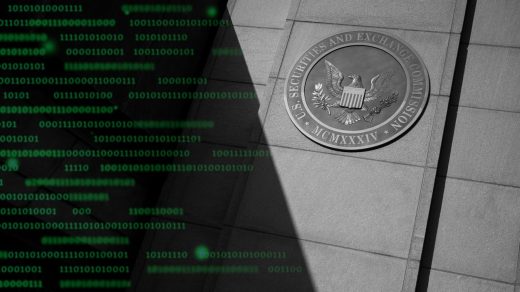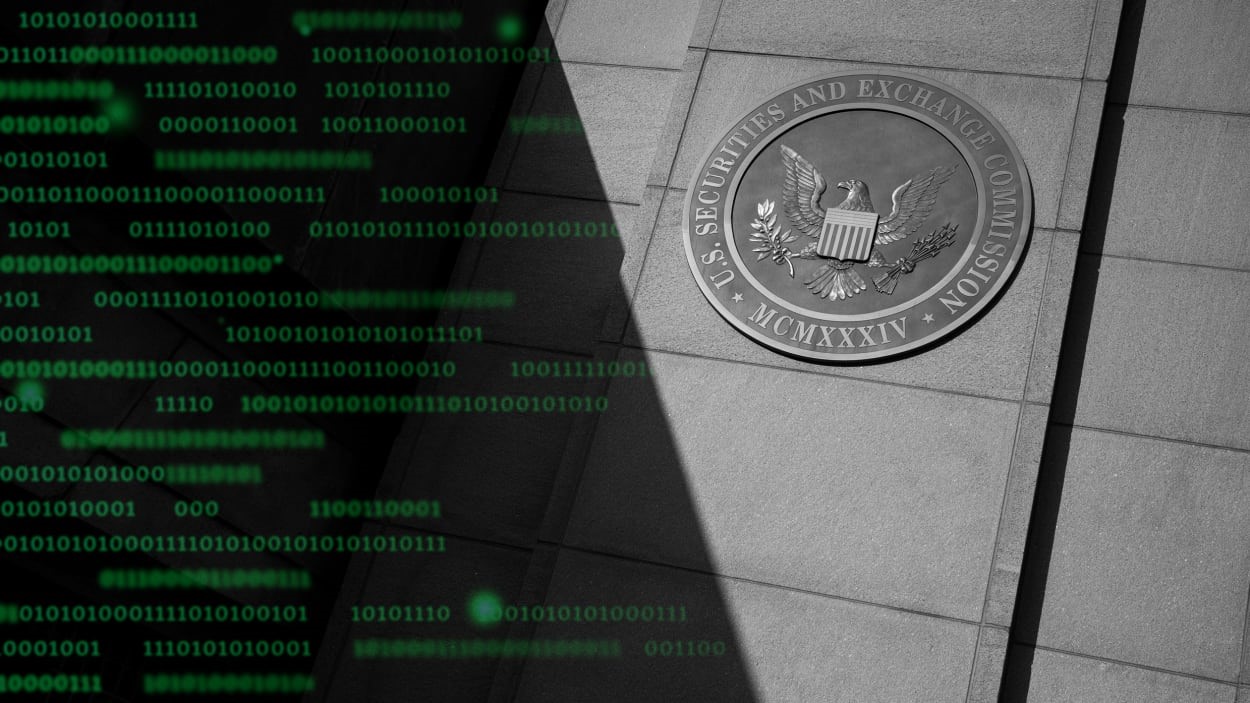Coinbase and the SEC are battling it out in court for the future of crypto
By Scott Nover
The latest chapter in the fight for the future of crypto kicked off this week in a federal courthouse in lower Manhattan.
On Wednesday, a federal judge in the Southern District of New York heard oral arguments in a courtroom battle between the popular crypto exchange Coinbase and the federal government over whether it’s operating as an illegal securities exchange.
In June, the U.S. Securities and Exchange Commission (SEC) sued the popular crypto exchange Coinbase alleging a litany of misdeeds, foremost that it’s functioning as an unregistered exchange for crypto tokens that are, in fact, securities under federal statute.
At stake is not just the fate of Coinbase but also the entire crypto sector at large.
In the past decade, the crypto industry—whose combined assets have a $1.75 trillion market capitalization—has flourished by claiming incessantly that its products are fundamentally not securities but a new class of digital assets. The SEC under Chair Gary Gensler has largely conceded that bitcoin is not a security, rather a commodity—but maintains that most other cryptocurrencies would fall under the agency’s purview. (The Securities Act of 1933 places strict rules and transparency measures on stocks and other publicly traded assets—legal requirements that haven’t yet applied to most cryptocurrencies.)
Coinbase, a U.S.-based publicly traded company with a $32 billion market capitalization, chose not to settle with the government but fight for its life in court. “This is an existential threat for Coinbase,” says Tyler Gellasch, president and CEO of the nonprofit Healthy Markets Association.
In its complaint, the SEC alleges that Coinbase sells at least 13 crypto tokens—with names like Solana, Cardano, and Filecoin—that fit the legal definition of a security. It’s not just an illegal securities exchange, but also an illegal broker and clearinghouse. The SEC also took issue with Coinbase’s staking program, in which people essentially earn interest on cryptocurrency by holding it on a given platform, as an unregistered security.
In order to win the main thrust of its case—that Coinbase is an illegal securities exchange—the government needs to prove that just one of these coins passes the Supreme Court’s Howey test, adopted in 1946, which says securities are investment contracts involving an “investment of money in a common enterprise with a reasonable expectation of profits to be derived from the efforts of others.”
In court on Wednesday, Coinbase moved for the judge to dismiss the case outright, so federal district judge Katherine Polk Failla heard oral arguments from lawyers for each side. More than 400 people were on the public conference line by the day’s end, a sign of how critical the case is to the sector.
“Regardless of these specific tokens at issue here, the broader question is a legal one about whether crypto assets just generally should be considered securities or commodities,” says Todd Phillips, a law professor at Georgia State University’s Robinson College of Business, who cowrote an amicus brief in the case. “And that is a question that is decided at the motion to dismiss stage.”
Coinbase says the government’s claims were meritless and alleged its enforcers were employing an overly broad interpretation of the nearly century-old securities laws. The SEC countered, saying that there’s an investment contract formed when customers buy into the underlying ecosystem that supports a given token, a contract that Coinbase enables.
The question of whether crypto tokens are, in fact, securities has drawn disagreement in the Southern District of New York. In recent weeks, Judge Failla’s colleagues have taken different stances toward this question. In a July decision in the government’s case against the crypto firm Ripple, District Judge Analisa Torres said only sales of Ripple’s XRP token to institutional investors constituted an illegal securities offering, but not its sales to retail investors because they had no reasonable expectation of profit. Meanwhile, in a case against Terraform Labs, Judge Jed Rakoff ruled in December that the company’s TerraUSD and Luna tokens fit the legal definition of securities.
“If these tokens are considered securities, then most of the tokens that Coinbase lists are considered securities and Coinbase would either have to register as a securities exchange or delist basically everything but bitcoin,” Phillips says. “They can’t really run their business just listing bitcoin.”
Coinbase is an everyman in the crypto process. An adverse ruling would be disastrous for Coinbase in that the firm may also have to choose one of its many functions—exchange, broker, clearinghouse, and others. “In other parts of our securities markets, these functions are separate,” Gary Gensler noted in announcing the Coinbase suit.
“The New York Stock Exchange is not the same thing as [the clearinghouse] DTCC is not the same thing as JPMorganChase is not the same thing as Fidelity. Coinbase is trying to be all of those things,” says Gellasch. “If there’s an adverse ruling here, it’s very likely that Coinbase, now subject to the federal securities laws, would have to break off its different businesses, each of which would be less profitable than those businesses merged together.”
The judge asked important questions about the staking portion of the case, says Rutgers law professor Yuliya Guseva, who also directs the school’s blockchain and fintech program. “The questions indicated an important reality of our markets: many financial services and products are very similar in terms of their nature and functionalities,” she says. “For example, banks and money market funds offer functionally very similar products to the public but are regulated differently. Staking exemplifies these uncertainties. Is it closer to securities markets or to other financial services?”
This year, the SEC has gone after crypto exchanges—not only Coinbase, but also Binance, Bittrex, and Kraken. The Coinbase case is the first of these to play out in court, and the one that seems destined for an eventual date at the Supreme Court.
“Coinbase has done just about everything right except for potentially violating the securities laws,” Phillips told me. “Compare that to Binance which has money-laundering allegations and other things that will muddy the waters. I don’t think that is the case that either the SEC or the crypto industry want to take up to the Supreme Court.”
If the Supreme Court hears this case, it will have the option to alter the legal precedent at the center of this case—the Howey test—a decision that, if employed, could radically change not only the fate of crypto but how the government intervenes to protect consumers throughout the financial markets.
(26)



